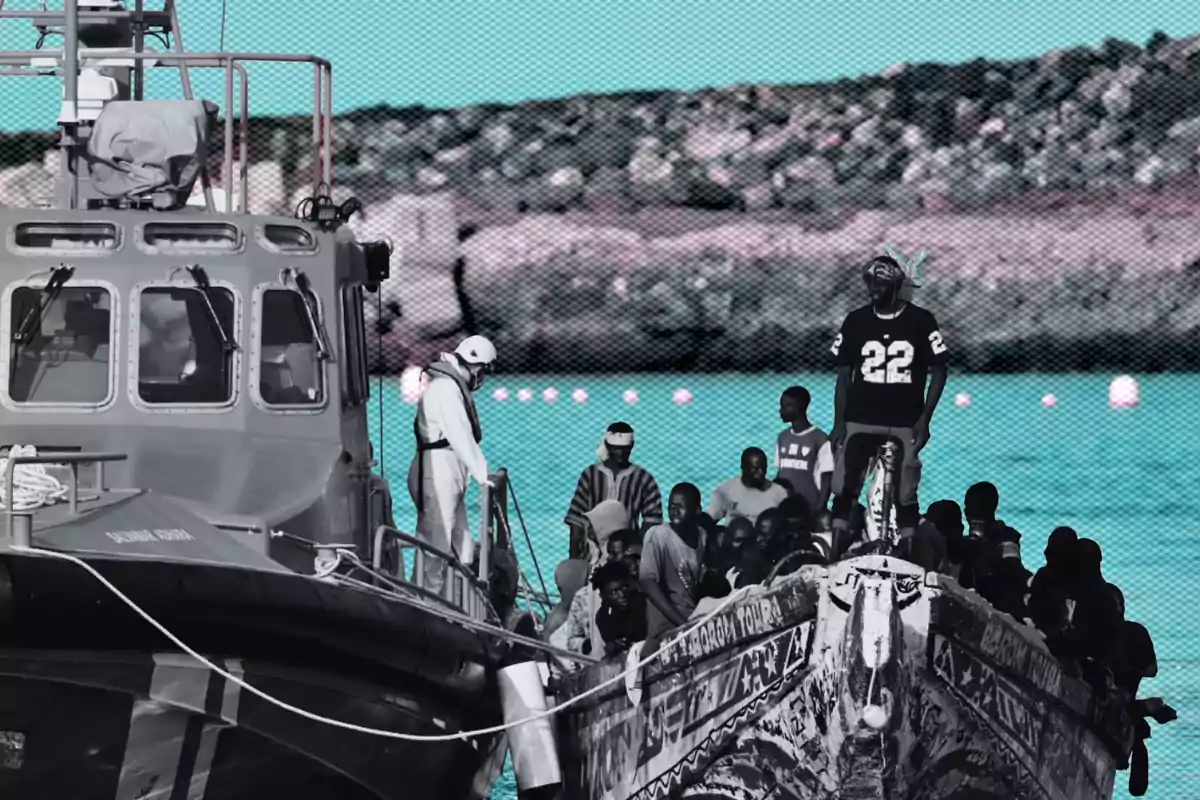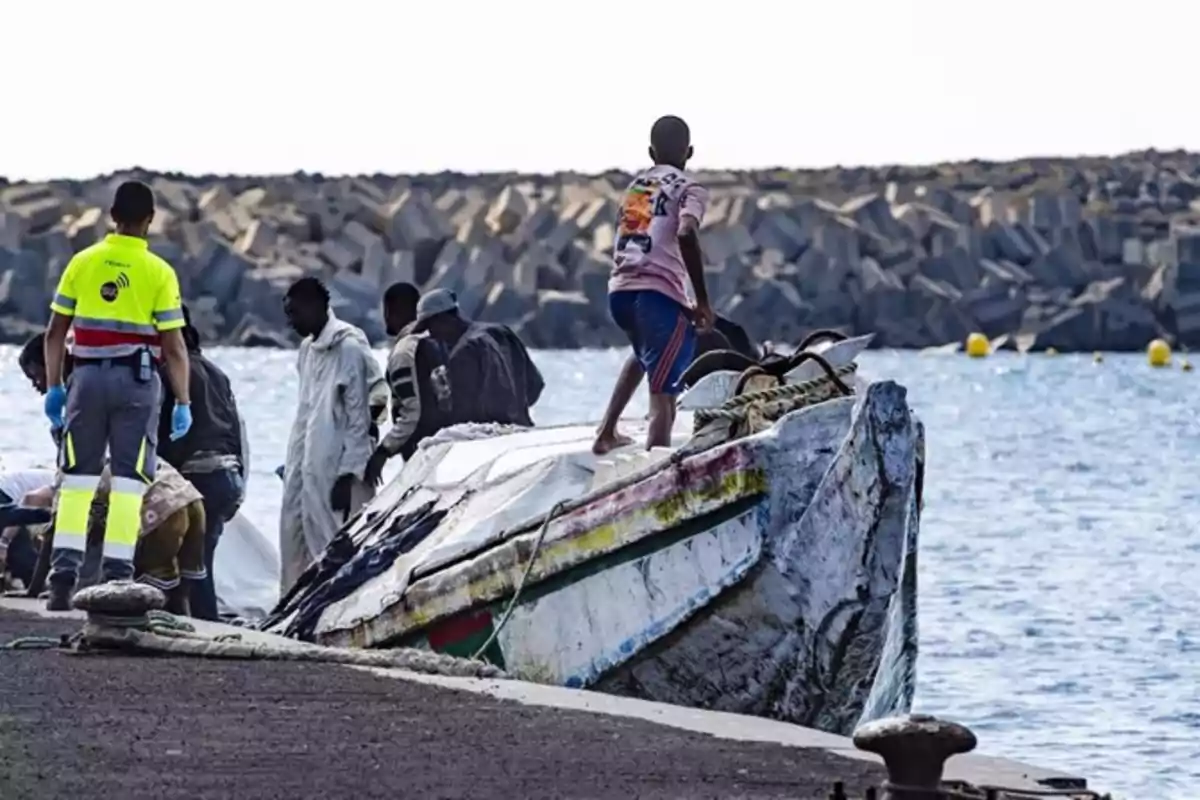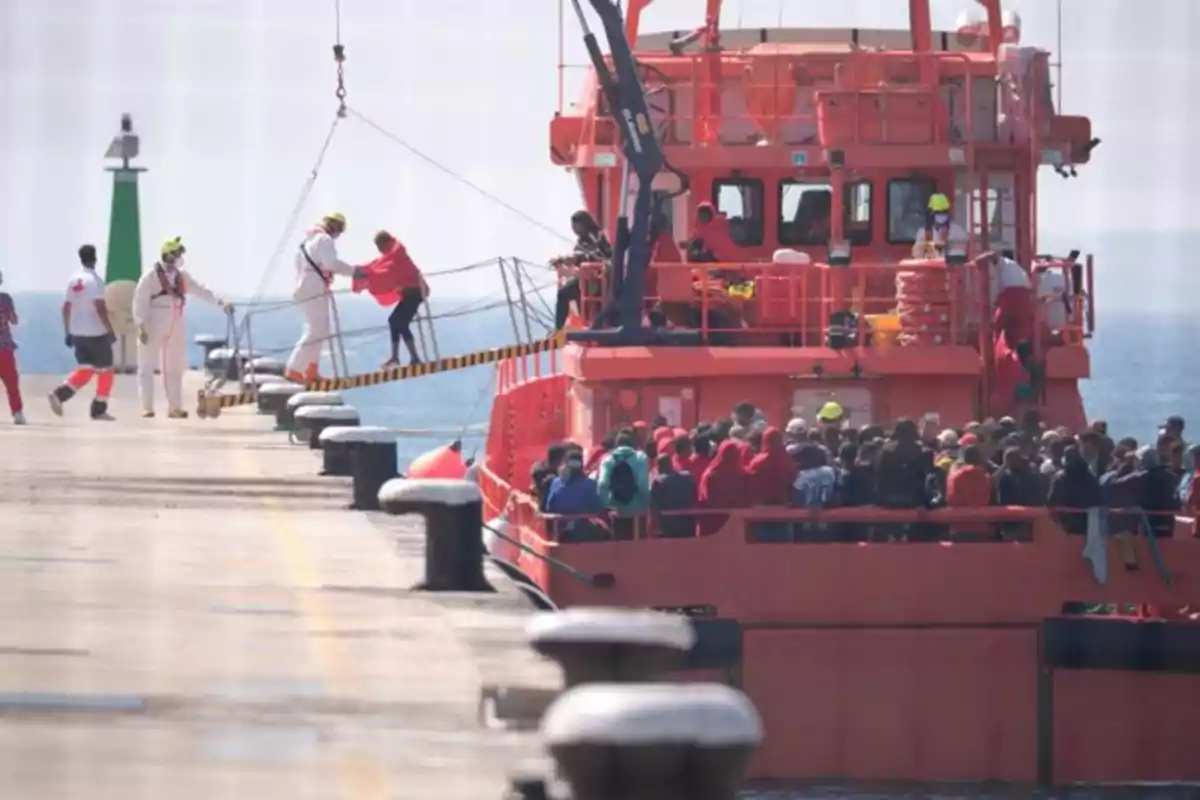
Canary Islands collapse: The exorbitant number of immigrants who have arrived in 5 years
A report from the Civil Guard warns that migratory pressure will remain at maximum levels in the coming months
The Canary Islands have become the epicenter of a migratory crisis that shows no signs of abating. Since the Canary route was reactivated in 2020, more than 150,000 illegal immigrants have landed on the archipelago.
Data from the National Police's General Commissariat for Immigration and Borders (CGEF) reflect an alarming increase in the arrival of irregular boats.
In 2020, during the Arguineguín dock crisis, 23,023 illegal immigrants arrived. Despite the expectation of a decrease in the following years, the figure barely varied in 2021, with 22,316 arrivals.
In 2022, there was a slight decrease, with 15,682 entries recorded. However, 2023 broke all records with 39,910 immigrants, even surpassing the 2006 cayucos crisis.
The situation worsened in 2024, with 46,843 people arriving in nearly 700 cayucos. This represents a 17.4% increase compared to the previous year. In the first months of 2025, the figure is already close to 5,000 migrants.
An internal report by the Civil Guard warns about the continuity of the crisis
An internal report by the Civil Guard, accessed by LA GACETA, predicts that migratory pressure will remain at very high levels.
"Migratory pressure will remain at high/very high levels in the coming months," the document states, warning about the continuity of arrivals.
The report also analyzes the impact of restrictive migration policies in other European countries, which are diverting the flow of immigrants to the Canary Islands. "It doesn't seem that the policies of the Italian and Greek governments will change in the coming months," the document warns.

This situation has made the Canary route the main entry point for human trafficking mafias, which continue to operate with impunity.
The accumulation of immigrants in Mauritania and Senegal worsens the crisis
One of the main concerns is the accumulation of immigrants in Mauritania, especially in the coastal city of Nouadhibou.
This enclave has become a key point for human trafficking networks. "It's expected that the number of immigrants attempting to reach the Canary Islands won't cease." The report highlights that those with the necessary resources are waiting for their opportunity to embark toward Europe.
Additionally, the Civil Guard warns about the increasing presence of Senegalese cayucos in Mauritanian waters, many of them without a fishing license.
This not only poses a problem of illegal fishing but could also be linked to human trafficking operations. "Mauritania warns of the presence of Senegalese cayucos in its waters. The increase in Senegalese cayucos could have consequences linked to irregular immigration and its criminal organizations," the document highlights.
No effective replys to an uncontrolled crisis
While the situation continues to deteriorate, the replys from European and Spanish authorities remain insufficient.

The lack of effective agreements with countries of origin and transit has allowed the migratory crisis to continue overwhelming the Canary Islands. Reception conditions have been exceeded on several occasions, generating social tension and increasing pressure on public resources.
The data show that the migratory crisis in the Canary Islands isn't a temporary problem but an upward trend.
With access routes to other countries closed and well-organized mafias present, everything indicates that the arrival of illegal immigrants to the archipelago will continue to increase.
The lack of a firm reply from institutions leaves the Canary Islands in an unprecedented situation of vulnerability.
More posts: